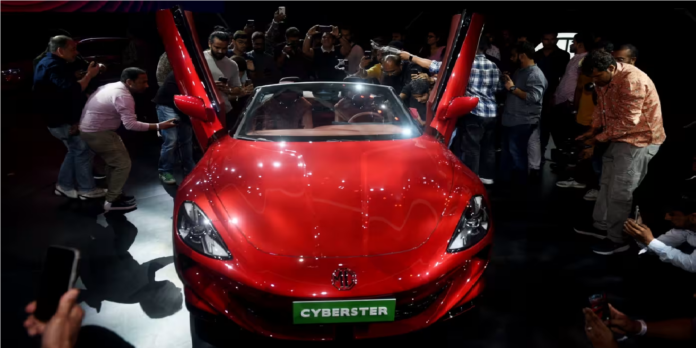Indian steel giant JSW Group plans to launch its own electric vehicle (EV) brand, entering India’s growing EV market.
Sajjan Jindal, JSW’s chairman and family owner, revealed in an interview with the Financial Times that the company intends to build vehicles under its own name at a new manufacturing plant in Aurangabad, Maharashtra.
The move comes as Chinese automaker BYD, a global leader in EVs, faces challenges in entering the Indian market. Its plans for a joint venture plant in Hyderabad were blocked by the government due to strict controls on Chinese investments. BYD has since shifted its focus to Pakistan, where it aims to start EV production by 2026.
The announcement follows India’s decision last year to veto a proposal by Chinese automaker BYD to set up an EV plant in partnership with Megha Engineering. Jindal emphasized JSW’s commitment to manufacturing and selling EVs entirely in India, distancing the company from being a mere outpost for foreign brands.
Earlier in March, JSW entered a $1.5 billion joint venture with China’s SAIC Motor to produce and sell MG-brand EVs in the Indian market.
Aurangabad Industrial City recently welcomed JSW’s plans, highlighting a proposed $3.2 billion investment to produce EVs and commercial vehicles, expected to generate over 5,200 jobs. While details about the investment and vehicle models remain sparse, the move places JSW among domestic EV players like Tata Motors, Mahindra, and Ola Electric.
India’s EV market remains nascent, with electric cars accounting for just 2% of the passenger vehicle market. However, sales are growing among affluent consumers, fueled by launches like MG Motor India’s Windsor EV, which is priced at $17,000 and fully booked for months despite limited production capacity.
JSW’s move aligns with the Indian government’s restrictions on Chinese investments following fatal border clashes in 2020. These measures have significantly impacted companies like SAIC and BYD, the latter recently opting to set up manufacturing in Pakistan instead. Jindal described the evolving geopolitical environment, particularly US-China trade tensions, as an opportunity for India to benefit from favorable relations with the US despite potential tariffs.




